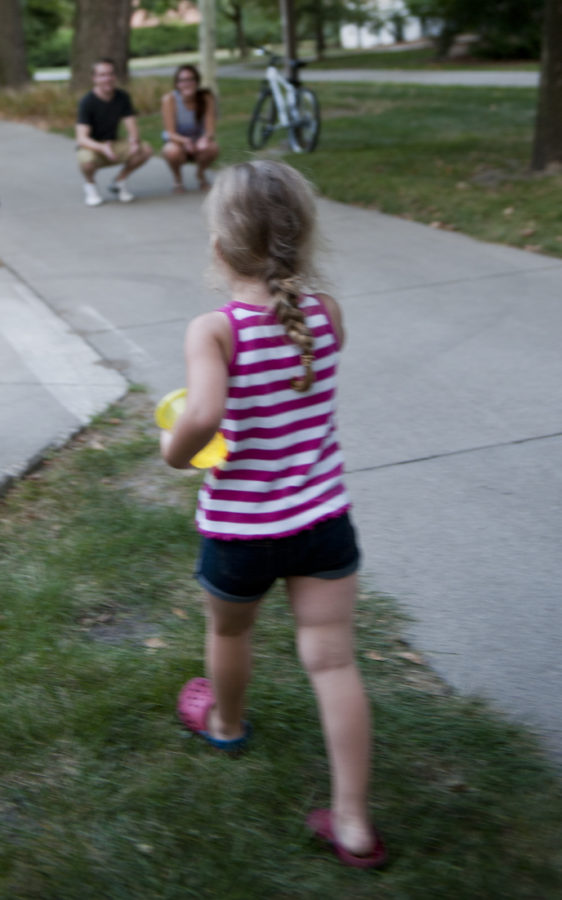Yetley: Misconceptions surround foster care
Photo: Yanhua Huang/ Iowa State Daily
While many people bemoan foster care, living with family, whether biological or foster, is better for a child’s emotional well-being than any other viable alternative.
August 27, 2013
This summer, my internship allowed me to work with families that have a Child In Need of Assistance case or a delinquency case. I learned a lot this summer, but the generally negative attitude toward foster care really irritated me. People use foster care as a scapegoat for the traumatic times their families goes through.
I knew about this general dislike before starting this internship, but that was because most people I interact with have not been through the foster care system and are unaware of what foster care is really like.
Recently, in court, a woman with grandchildren in foster care said to me, “God forbid they go to foster care.” This might have been acceptable if a family member were a safe placement for the child, but that was not the case.
The state always looks to place the child with family first, mainly because family is more familiar to the child and less traumatic. It is also generally easier for the children because the family has more background knowledge of the child.
Foster care is not bad. It’s like a time-out for families. Think of it as an extended babysitter for the children. Many parents qualify their dislike of foster care by making their concern about their children: “Oh, my child will never be in foster care.” What this statement really says is this parent believes they are a good parent and only children with bad parents go to foster care.
Any child could go to foster care; any parent can make a mistake, this doesn’t make someone a bad parent. There’s this strange myth that seems to float around that parenting is completely instinctual, and if someone is a bad parent, he or she is somehow a bad person. That’s completely not true, anyone can mess up. The hard part is fixing whatever mistake the parent made. Foster care gives the parent the opportunity to fix his or her mistake — and holds them accountable to not make it again.
There’s this other lovely myth that foster parents are only in the “business” to collect a check each month. Foster parents are compensated each month, but the amount of money they receive is nowhere close to covering the expense that it takes to care for a child. The check is more or less like a small thank-you gift to these parents for covering all other expenses.
Depending on how long the children are with the foster parents, they might have to cover the cost of new clothes, school supplies and after-school activities — not to mention the bare minimum of feeding the children and driving them to and from visitations and appointments. Many foster parents are also parents themselves, so one would hope that the family would include the foster child family vacations or taking the family out for dinner.
Not only is it a fiscal burden to be a foster parent, it’s a strange relationship to foster. There is a child living in the home of a foster parent, being treated and cared for like any other of their biological children, but the foster parents have to ask Department of Human Services if they can drive out of the county. The foster parents have to contact the Human Services to ask the biological parents if they can take the foster child to the doctor, something any other parent would just be able to call and make an appointment for. There are so many more steps that foster parents have to make in order to provide for their foster child.
Most foster parents work, just like other parents. There was a woman I worked with who was just shocked her children had to go to daycare while they were in foster care. She was a stay-at-home mom and was appalled her children were in foster care, but there is nothing wrong with daycare if someone needs to work to support their family.
Foster care gets a bad reputation, but it’s a much better solution than orphanages or holding children in jail cells while their parents figure things out. It’s similar to most volunteer work; there are boring jobs, dirty jobs or really annoying jobs, but the good it provides for the community outweighs whatever nuisance someone is putting up with to get the job done.
It is somewhat understandable if parents are complaining about foster care; they are projecting their problems onto someone else. This still is not acceptable and unfortunately fairly common. When a person who has no involvement with the foster care system hears the complaints of these parents, the misunderstanding perpetuates foster care’s bad reputation.

















